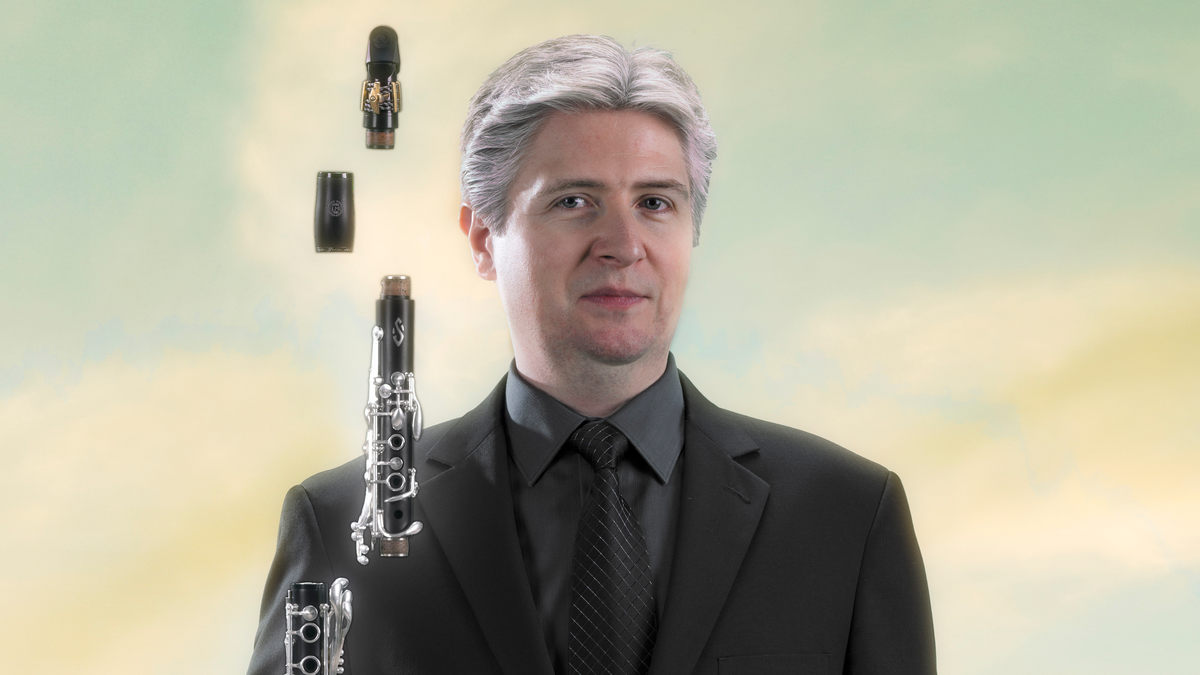New ASU associate professor of clarinet strives to facilitate students’ playing, critical thinking

Joshua Gardner, associate professor of clarinet
Arizona State University's School of Music, Dance and Theatre has announced Joshua Gardner as associate professor of clarinet.
Gardner, an ASU alum, began his teaching career with ASU in 2011.
“Dr. Gardner brings a wealth of knowledge and experience to this position,” said Heather Landes, director of the ASU School of Music, Dance and Theatre. “Our students will greatly benefit from his teaching, woodwind physiology research and outstanding musicianship.”
Music education has been Gardner’s career path since his undergraduate studies at the University of Kentucky, he said, when his original plan was to earn a music education degree and become a junior high band director. However, performance became increasingly important to Gardner through work with his mentor, Scott Wright. While committed to education, Gardner also completed a degree in performance.
“I want to help students be the best musicians they can be, but my job is not just to make or facilitate exceptional clarinet players,” Gardner said. “It is also to help students become critical thinkers, help them solve problems and help them cultivate their goals, whatever career path they choose.”
He believes that part of the college experience is to broaden a student’s perspective to be more open to something that they previously were not open to considering.
Gardner said ASU was his top choice for graduate school after performing at the College Band Directors National Association conference in 2003, where he encountered Robert Spring, ASU professor of clarinet, whom he had met years prior, and heard the ASU Wind Symphony, conducted by Gary Hill, the now-retired director of bands.
Gardner said the clarinet program at ASU is currently a team-taught single studio, which he and Spring created to build camaraderie and provide a positive studio experience for clarinet players.
In addition to his teaching, Gardner maintains an active performance career, performing with several ensembles, including the internationally recognized Paradise Winds and Égide Duo.
Gardner, a performing artist for Henri Selmer Paris/Conn-Selmer and Silverstein Works, believes his professional performing experience positively impacts his teaching style, allowing him to experience different perspectives professionally that he can share with his students.
“My teaching style focuses on helping the students explore what makes sense to them and guiding them to refine their interpretation, because ultimately, their interpretation and performance is their creative output,” Gardner said.
In addition to performing and teaching, Gardner has a strong interest in woodwind pedagogy and research. In 2008, he won first prize at the International Clarinet Association Research Competition and has presented lectures on tongue motion during clarinet performance throughout the United States, often accompanied by live tongue imaging. He is currently exploring the use of ultrasound for quantified research and performance diagnostics. As director of the Performance Physiology Research Laboratory, Gardner often mentors student research initiatives ranging from examining embouchure force dynamics using thin-film force transducers to exploring nonarticulatory tongue motion during clarinet and saxophone performance using ultrasound imaging.
More Arts, humanities and education

ASU alumna makes her way back to the ASU Gammage stage for '¡azúcar!'
As the Los Angeles-based CONTRA-TIEMPO dance group prepares for its upcoming production “¡azúcar!” at ASU Gammage, for one member of the dance group it is also a nostalgic return to her home.Born in…

ASU FIDM professor wins international award for fantastical, sustainable creation
The horror of an ailing Earth inspired an Arizona State University fashion professor to create a fantastical garment out of sustainable, re-used and found materials that won a prestigious…

ASU workshop trains educators, professionals from marginalized communities in disaster science
As devastating as hurricanes can be to anyone caught in their paths, they strike marginalized communities even harder.To address this issue, a fund named for a former Arizona State University…